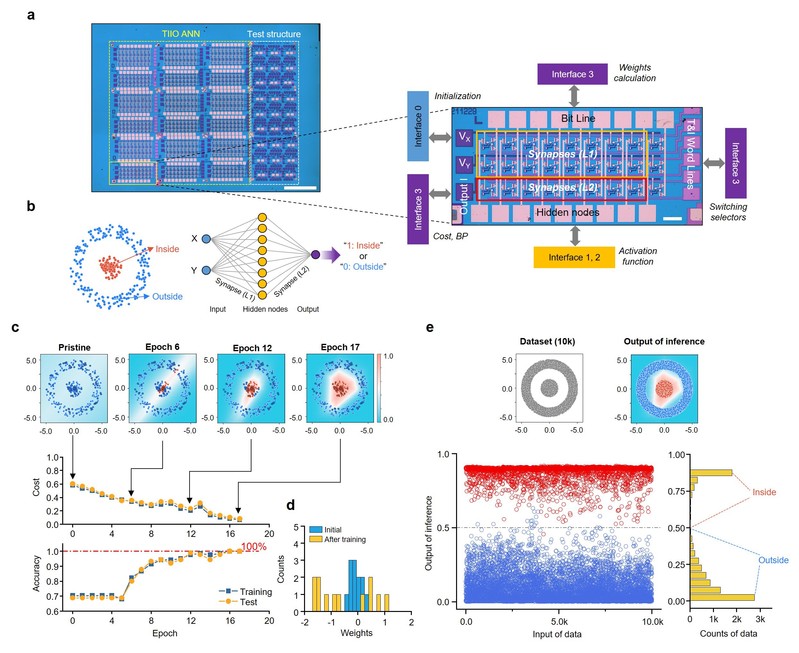 |  | |
Zhihao Yu Associate Professor zhihao@njupt.edu.cn | Hengdi Wen Ph.D student hengdiwen@163.com | |
Xiai Luo Ph.D student xaluo1126@smail.nju.edu.cn | ||
| ||
Based on the von Neumann architecture, computer systems have greatly promoted the improvement of logical computing power. However, with the explosion of data and the growth of real-time data processing requirements, the information exchange between the CPU and shared memory on which the von Neumann architecture relies has led to slower data processing time and higher latency, which has become the main bottleneck affecting system performance. Neuromorphic computing is a computing architecture inspired by the structure and functionality of biological neural networks, involving the construction of hardware and software systems to simulate the behavior of neurons and synapses, used to perform tasks such as pattern recognition, image processing, and machine learning. The team focuses on designing and developing new memory and in memory computing architectures, utilizing memory matrices to simulate neuronal behavior and improve the performance of data-intensive applications by eliminating I/O bottlenecks. This enables faster data processing and analysis, thereby solving energy efficiency issues in neural form computing, and ultimately achieving highly energy-efficient artificial intelligence chips.
